Inclusive Learning – Giving Every Child Their Chance
At Solebay, we work hard to ensure every one of our pupils has the tools and support they need to be able to learn in the same manner as their peers.
Often inclusive learning is seen as something solely for children with SEND. While this is certainly part of it, inclusive learning is far more – it is a practice which includes everyone.
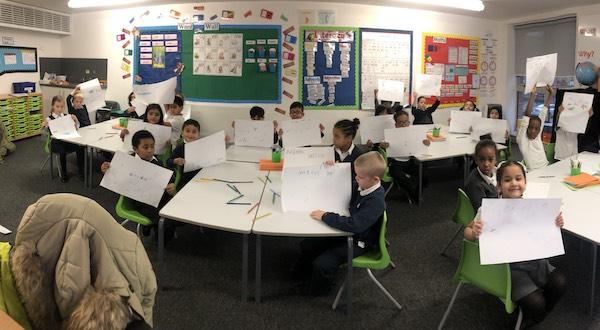
We approach it by looking at the individual needs of every child at our school. These can be academic, and often are, but we also examine other factors such as independence, resilience and attention skills. There are often other barriers to learning to consider, including social, gender and economic issues. This holistic approach allows us to see the whole picture, and from there we are able to take positive action and provide the most effective support.
Pupils at Solebay learn in age-appropriate general education classes, regardless of their individual needs or learning barriers and we give them high-quality instruction, interventions and other support that enables them to succeed. Teachers ensure that all pupils are included in effective learning and personalise their individual pathways to enable them to access all areas of learning.
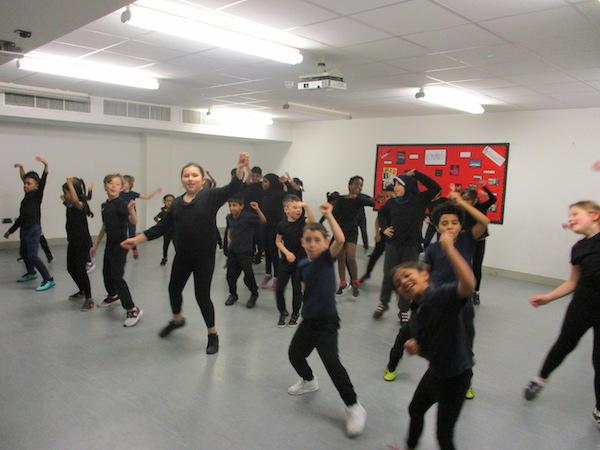
As an example of the work we do, all the children are taught dance by a specialist teacher. These inclusive dance activities meet the needs of every child in the class regardless of their ability, with a focus on exploring and developing individual creativity, self-expression and physical potential. This helps pupils build their confidence and self-esteem, and there is a positive effect on social interactions, especially where pupils may not have a common spoken language.
We also focus on ensuring pupils with SEND have experiences that support them in everyday life, so that they can feel valued in our community. We celebrate differences through daily practice as well as focus days and therefore pupils make an effort to include everyone and to treat everyone the same.
It is unreasonable to expect children to do their best learning if their mental health is suffering, and research shows this is a growing concern among children and young people across the country. Covid in particular has caused many pupils to experience fear, isolation and anxiety. Therefore we remain focused on ensuring that we promote positive mental health and wellbeing, and that our pupils and staff have the best possible help available to them.
Much of the support we provide is done from within our school, however if we feel we don’t have the right resources to give the most effective support we will use external specialists instead. We also work closely with other schools in the Trust, regularly meeting to work together, share best practice and expertise, which can then be applied successfully to the individual schools.
By committing to inclusive learning we are supporting all pupils to become confident learners and well-rounded individuals equipped with the skills they need to build healthy relationships and make good choices now and in the future.
The Science of Teaching Science
Having an effective understanding of science is incredibly important both for the individual and society. Children are entitled to know how the world works – without this knowledge their lives aren’t as rich. A good understanding of science will allow them as adults to make informed decisions on important matters, such as voting, or receiving a vaccination as has been seen recently. And it opens doors to numerous careers in a huge range of fields, not just the ‘traditional’ science professions.
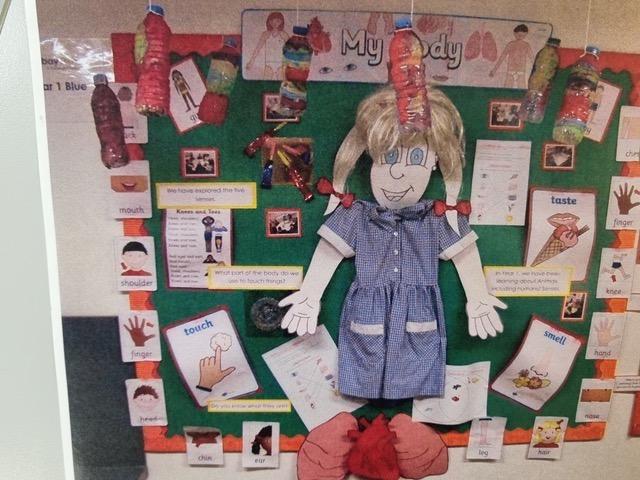
Our approach to teaching science is different from some schools, as they will use an inquiry-based learning approach, which involves minimal guidance from the teacher and pupils designing their own experiments to check their own hypotheses. For example, this could take the form of asking the children to look at a bug and see what they can find out. However, an increasing number of studies show this is ineffective as, without having the right knowledge in place, children won’t know the questions they need to ask to get the most out of the approach.
To teach science effectively we, and all Paradigm schools, use a ‘knowledge-first’ system instead, which focuses on teaching children the scientific knowledge before anything else. The teacher breaks problems into manageable parts and shows the solution to each, before the children practice using similar problems. By doing this, the children then have the foundation they need to be able to do the inquiry-based learning effectively. It also helps the children develop essential skills such as problem solving, understanding scientific texts or extrapolating accurate conclusions from results.
Another way we improve science outcomes is to meet regularly with teachers from the other schools in Paradigm Trust to share ideas. A large proportion of time is spent discussing ways in which children can be better prepared for the move from primary to secondary school, and how to make science effective from Nursery to Year 9. We have found by doing this there is now less disruption when pupils move from Year 6 to Year 7 and their learning experience is far smoother. Much of this work is led by Ben Rogers who is on the Education Committee at the Institute of Physics, and on the editing panel for the Association of Science Education journal. He is also part of the Ofsted Science advisory group, with a particular focus on primary schools.
Since we have been working this way it is noticeable that children are achieving better results and becoming more engaged in the subject. Between now and the end of the school year our curriculum will cover a huge range of scientific topics, including Forces and Magnets, Living Things and their Habitats, Light and Sound, Renewable Energy and Earth and Space.
Learning Through Lockdown
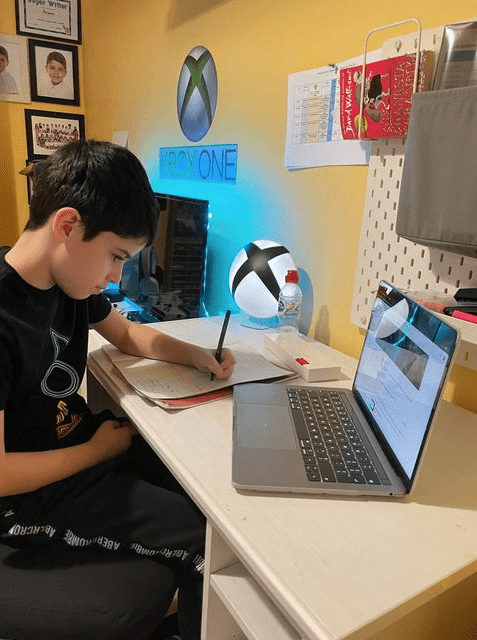
Despite the current challenges around the majority of our pupils learning from home, we have started the term on a high by ensuring children both at home and in school experience the same quality-first teaching and learning they would get in the classroom.
This is as a result of the extensive planning and preparation we had done before the start of the year. We took the findings and insights we gained during the first period of lockdown last spring and summer, and with other Paradigm Trust schools built a robust plan of action which we could apply should we need to close and engage in remote learning again.
Our preparation continued when children returned to school in the autumn. This included training staff on how to use Google Classroom, discussing a remote learning pedagogy with other Paradigm schools and planning the logistics that were necessary to be able to deliver effective teaching online to all its pupils.
So when, with barely twelve hours’ notice, the official notification that schools would be closed to all children (apart from vulnerable and key worker children) was received, we were able to move swiftly to remote learning with a minimum of disruption.
Now we are delivering a full and engaging timetable which comprises recorded lessons made by Paradigm teachers and live lessons which follow the same structure as an in-school lesson. We also provide online activities which support the children’s learning.
One of the major challenges during the first lockdown was the digital divide, with many families unable to access the online resources available due to a lack of appropriate devices and/or a reliable internet connection with sufficient data allowance. To overcome this challenge we have issued school laptops to any children who are learning from home and don’t have suitable access to technology. Where families don’t have access to WiFi, we’ve purchased dongles and data for them. Non-digital resources, such as exercise books, are also issued to pupils and we have stocked up on extra resources such as glue, paint and materials for Art which can be picked up from school for pupils working from home.
It’s extremely important to us that all our pupils continue to get the support they need, so teachers and teaching assistants work together as they would normally to provide bespoke support to small groups of children, using virtual breakout rooms via Google Hangouts as lessons are being taught. Where needed, pupils also receive one to one support.
We are also reaching out to families with phone calls and house visits where necessary, and we offer the voucher scheme for families eligible for free school meals.
Lockdown is undoubtedly a challenge, but one we are meeting head-on. It is an opportunity to adapt and improve our teaching and learning, both in the classroom and remotely online. As we would do in normal circumstances we are seeking the most effective ways to teach, testing different innovations and then sharing those that have been proven to be effective with the rest of the school and the entire Trust. It is our goal to always deliver an effective, challenging and interesting remote learning experience for our pupils, so they can all achieve their best.
How a shared Pedagogy improves our pupils’ prospects.
Pedagogy is the science and art of teaching. Having a well-thought-out pedagogy improves the quality of our teaching and the way students learn, helping them gain a deeper grasp of fundamental material. Being mindful of the way we teach also helps us better understand how to help children achieve deeper learning.
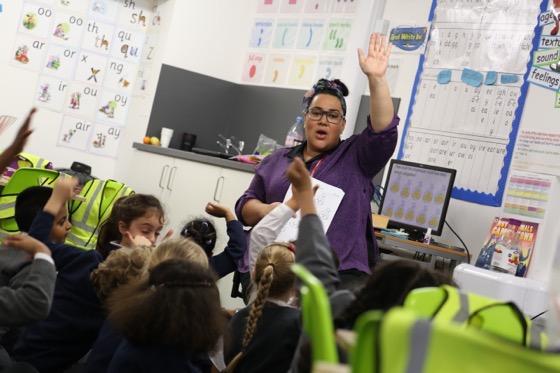
At Solebay Primary Academy, and in every other school in Paradigm Trust, our pedagogy is about using research-based methods to teach the right things effectively while at the same time recognising the needs of our pupils. With children only having a finite number of hours in school, the time we have to educate them is limited. This is why it is absolutely crucial to optimise those precious hours, using the correct strategy to ensure children make the most progress. It must challenge the highest attaining pupils and close learning gaps when they appear.
We do this through thoughtfully crafted teacher-centric lessons as these have been shown to be the most effective. We then support this approach with pupil-centred learning when learners are ready to take advantage of it. Solebay children get great satisfaction from learning knowledge and skills which they know is important and which they find stimulating and exciting. They are guided through step by step, so they experience success at each stage and at the end are able to produce work that they are proud of.
Our research-based methods are mainly taken from two titles – the first is Teach Like a Champion, a collection of techniques which combine to deliver incredibly effective learning to the children. Over the last three years we have added Rosenshine’s Principles of Instruction, which establishes ten different strategies for teaching and assessing. The two works complement each other, providing a well-rounded base on which to build our pedagogy.
By using the same pedagogy across Solebay there is consistency in the way we teach, in the way we behave and in the way we apply our rules, from Early Years right through to Year Six which hugely benefits both pupils and staff. However, we understand every class and every child is different, so our pedagogy is flexible, giving our teachers the tools for each individual situation and can adapt the strategies to fit their circumstances, while still retaining the underlying rationale.
It also enables us to make continuous improvements to our teaching. When one teacher makes a small adaptation to the shared pedagogy which proves successful, it is then easily put into practice across every Solebay class and at the other Paradigm Trust schools too. In the same way we benefit from improvements made elsewhere in the Trust, so we can be sure we are doing the best for every child at Solebay Primary Academy, ensuring at the end of a child’s school career s/he will be well prepared to flourish and lead a positive, fulfilling life.
